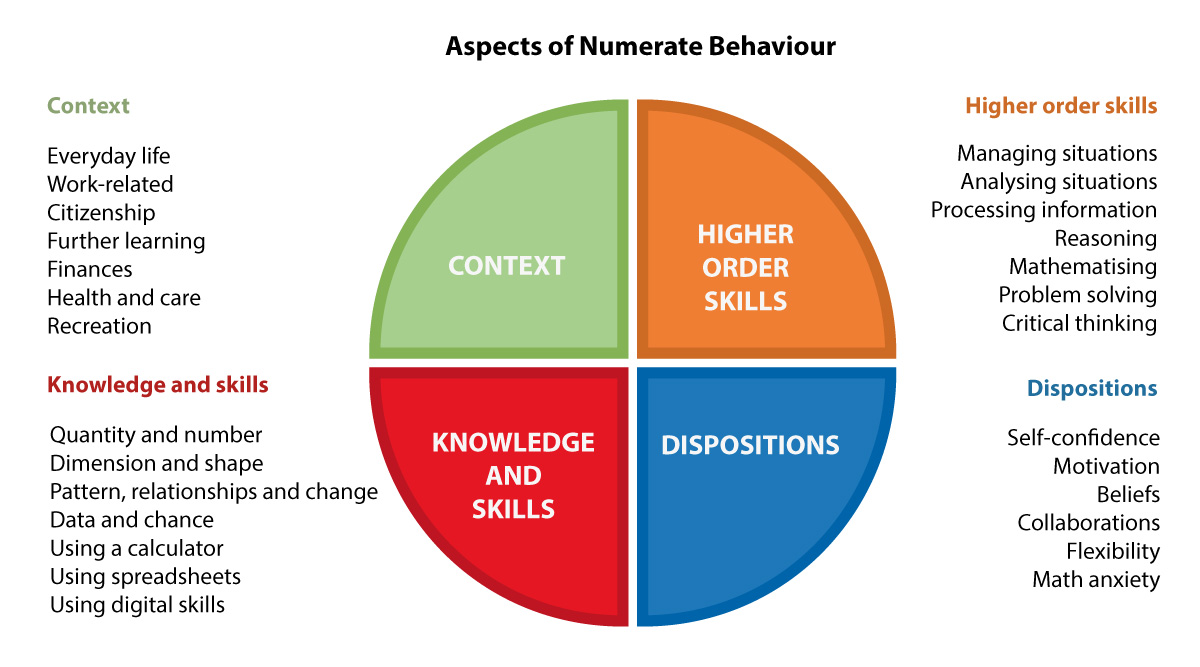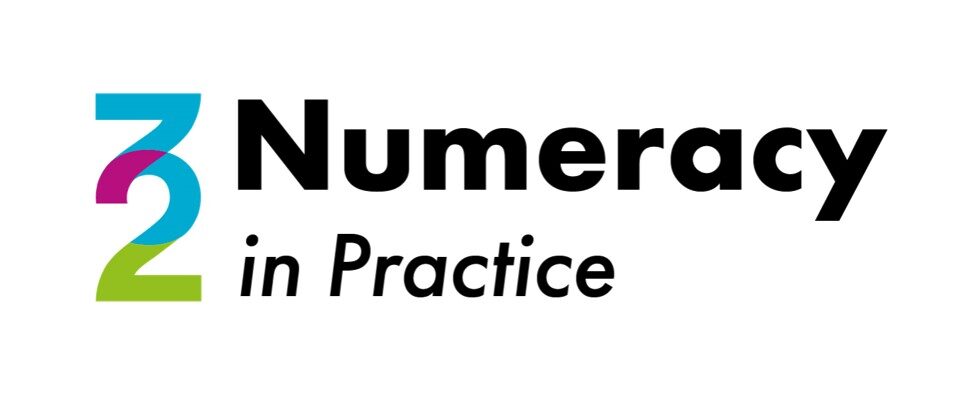Introduction
Numeracy and critical thinking are essential skills that often intersect. The key issues are highlighted below various contexts. Addressing these key issues involves nurturing numeracy and critical thinking skills from an early age, fostering more analytical and discerning individuals capable of navigating a number-drenched and data-driven world effectively.
The higher order skills in the Common European Numeracy Framework clearly overlap. The framework is not designed to isolate the serval aspects, just to emphasize that various aspects intertwine and overlap. Nevertheless it can be informative to focus for a while on one aspect.
Key Issues
- Problem Solving: Numeracy and critical thinking are fundamental for tackling complex problems, whether they involve mathematical equations or real-world challenges.
- Data Interpretation: Critical thinking is crucial for analyzing and drawing meaningful conclusions from numerical data, guarding against misinterpretation.
- Decision-Making: Making informed decisions often requires both numerical analysis and critical evaluation of options to choose the best course of action.
- Logical Reasoning: Numeracy complements critical thinking by providing a quantitative framework for logical reasoning and deduction.
- Analyzing Information: In an era of information overload, the ability to critically assess the reliability and relevance of numerical information is vital.
- Statistics and Probability: Numeracy skills are essential when dealing with statistics and probability, while critical thinking ensures sound judgment when interpreting results.
- Media Literacy: Distinguishing between accurate and misleading numerical claims in the media requires both numeracy and critical thinking abilities.
- Problematic Assumptions: Critical thinking helps individuals question assumptions underlying numerical models or arguments, promoting a deeper understanding.
- Scientific Inquiry: Numeracy is integral to scientific research, but critical thinking ensures the validity of hypotheses and the interpretation of experimental results.
- Education and Workplace: Both numeracy and critical thinking are increasingly valued in education and the workplace, as they empower individuals to adapt to evolving challenges and technologies.
Relation to Framework

Suggestions for PD meetings
Background information
Wikipedia:
Critical thinking is the analysis of available facts, evidence, observations, and arguments in order to form a judgement by the application of rational, skeptical, and unbiased analyses and evaluation.[1] The application of critical thinking includes self-directed, self-disciplined, self-monitored, and self-corrective habits of the mind,[2] thus a critical thinker is a person who practices the skills of critical thinking or has been trained and educated in its disciplines.[3] Philosopher Richard W. Paul said that the mind of a critical thinker engages the person’s intellectual abilities and personality traits.[4] Critical thinking presupposes assent to rigorous standards of excellence and mindful command of their use in effective communication and problem solving, and a commitment to overcome egocentrism and sociocentrism.[5][6]
Literature
Aizikovitsh-Udi, E., & Cheng, D. (2015). Developing Critical Thinking Skills from Dispositions to Abilities: Mathematics Education from Early Childhood to High School. Creative Education, 06(04), 455–462. https://doi.org/10.4236/ce.2015.64045
Díez-Palomar, J. (2020). Dialogic mathematics gatherings: encouraging the other women’s critical thinking on numeracy. ZDM, 52(3), 473–487. https://doi.org/10.1007/s11858-019-01092-2
Dwyer, C. P., Hogan, M. J., & Stewart, I. (2014). An integrated critical thinking framework for the 21st century. Thinking Skills and Creativity, 12(0), 43–52. https://doi.org///dx.doi.org/10.1016/j.tsc.2013.12.004
Peters, E., & Shoots-Reinhard, B. (2023). Better decision making through objective numeracy and numeric self-efficacy. In Advances in Experimental Social Psychology (pp. 1–75). Academic Press Inc. https://doi.org/10.1016/bs.aesp.2023.03.002
Yasukawa, K. (2018). The workplace as a site for learning critical numeracy practice. In Numeracy as Social Practice: Global and Local Perspectives (pp. 225–240). Educational Studies in Mathematics. https://doi.org/10.4324/9781315269474
